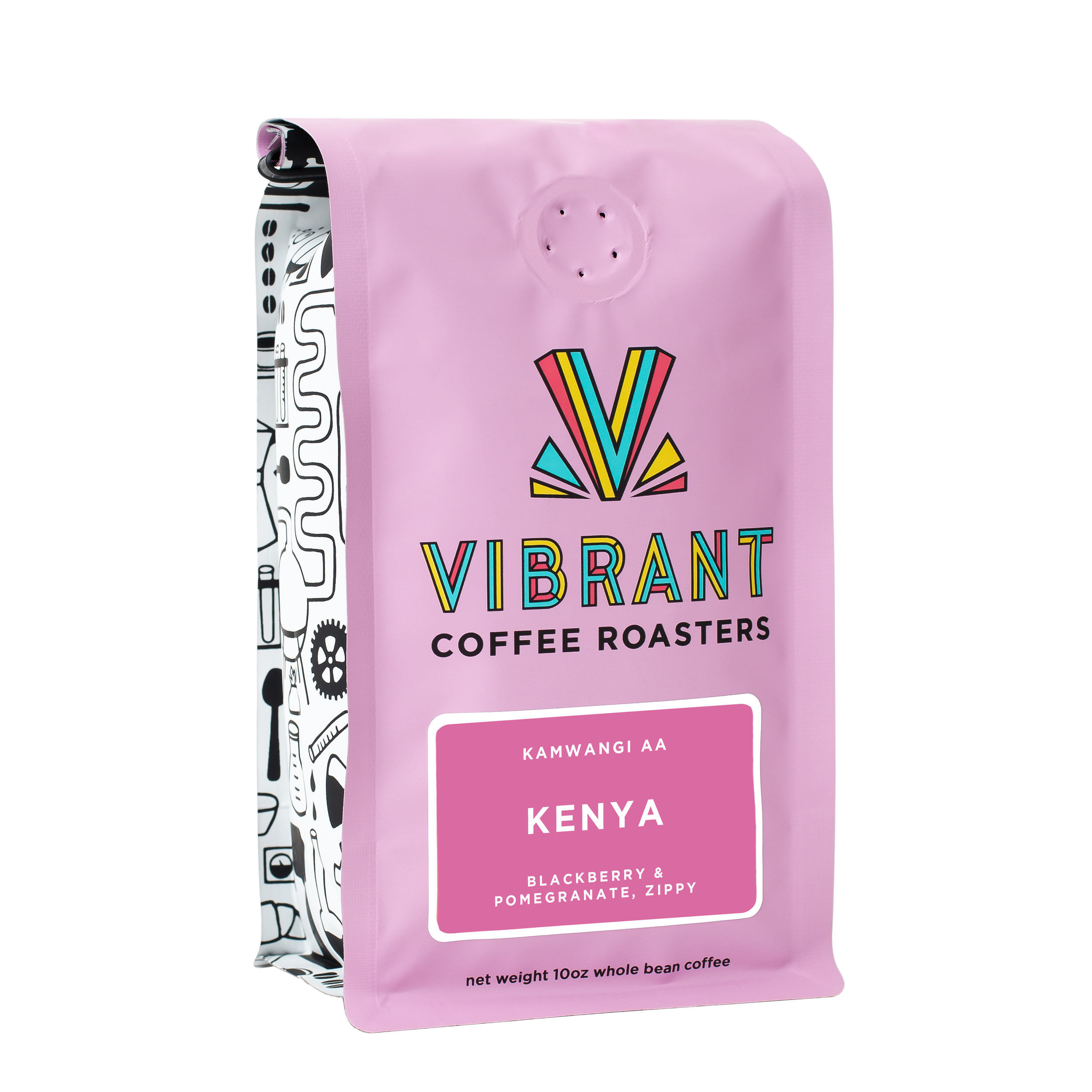Why We Love This Coffee
Kenyan coffee was really fantastic up until the late 2010s but then sadly had a decline in quality for several years. The relatively poor quality coffee was partially due to higher temperatures which made the coffee dry faster, but in 2023 Kamwangi factory and its partners invested in solar dryers, which allowed them to slow down the drying and preserve the complexity and vibrancy of the coffee. Coffee that dries too quickly loses its sweetness and tastes hollow and dull. For more on solar dryers and quality at Kamwangi, see this article from our importer.
In 2024, they actually didn’t use the solar dryers much and instead, during drying, the coffees were covered in plastic during the hottest part of the middle of the day and again at night to protect them from both the hottest and coldest temperatures. This technique also seems to have worked, as the drying times were about two weeks, which is the target. Drying times during the poor quality years were sometimes as fast as just four to seven days!
The 2025 crop was hand-sorted for unripe and overripe cherries by the farmers before processing. After de-pulping to remove most of the fruit, the coffee was fermented for 24 hours in a fermentation tank under shade, then washed again, for a total of 72 hours of wet fermentation. Finally, it was dried on raised African drying beds with dry times taking up to 15 days. The result in the cup? The flavor profile is complex and vibrant. We taste blackberry, pomegranate, grapefruit, plum, and brown sugar. Enjoy!













